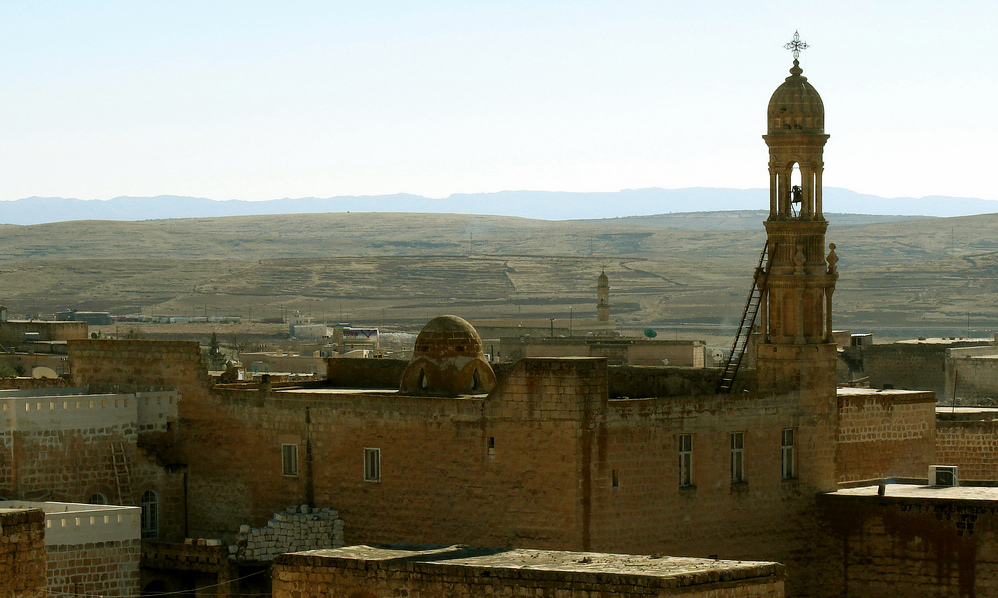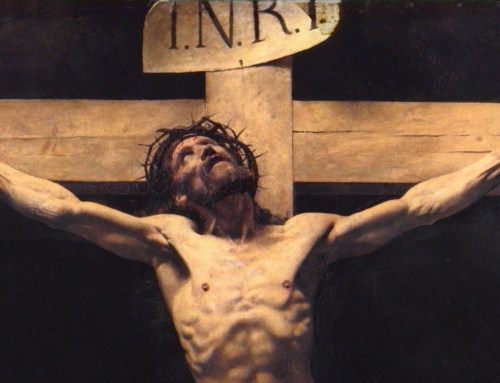The Scriptures tell us that Medes, Elamites, and inhabitants of Mesopotamia were present during the famous sermon given by St. Peter on the Day of Pentecost. If these people were like most converts, eager to share their newly-found faith, then it is safe to assume that their zeal would naturally lead them back home to Mesopotamia (modern-day Iraq) to spread that faith. This is one way in which it is believed that Christianity first came to Iraq.
The more circulated tradition, and there is no good reason to doubt that tradition, is that St. Thomas the Apostle preached the Gospel in Iraq while on his way to India. He was followed by one of the 70 disciples, St. Adday, who was then succeeded by his disciple, St. Mari. In this manner, apostolicity was established and maintained in the Church of the East. This Church grew within the Persian territories, a political context that made it difficult to maintain contact with the rest of the Church thriving throughout the Roman Empire. Despite its isolation, it maintained its apostolic doctrines, and ever since its establishment, not a century has passed in which it has failed to produce martyrs. Beginning with the 4th century, after the Great Persecution during the Sassanid dynasty under Shapur II, this Church of the East became known as the Church of Martyrs.
Today, as the Church celebrates the Solemnity of the Nativity of St. John the Baptist, the birth of the man who lost his head while preparing “the way of the Lord” (Mk 1:3), it is fitting to reflect on the grace of martyrdom.
Among the many difficulties experienced by those facing the possibility of martyrdom, one of the greatest is that of abandonment. St. John felt it too. Commenting on the passage in which the “friend of the Bridegroom” (Jn 3:29) sends his disciples to Jesus to inquire whether He was “the one who is to come,” St. Ambrose suggests that this was a moment of doubt for John (Mt 11:3). Doubt can arise at a moment of abandonment, when the intellect begins to question the veracity of faith because of the circumstances that seem to work against everything in which a person believes.
From an outsider’s perspective, it is easy to exhort a person experiencing abandonment with a few words of encouragement; it is easy to dismiss the difficulty of that person with a quick and emphatic admonition. However, for a soul undergoing this scourge, life is dark. The soul is tormented by the absence of her Beloved. It is “the fourth watch of the night,” and Jesus has yet to come (Mat 14:39). There is no one who can console her or comfort her. Abandoned and forsaken, she sets off on a journey “about the city, through the streets and squares,” looking for “him whom [she] loves” (Sg 3:2).
What is most remarkable about people facing such a trial is that despite feeling abandoned, despite being beaten and “wounded” by the “watchmen” of the night (Sg 5:7), despite suffering from “mocking and flogging,” “chains and imprisonment” (Heb 11:36), they remain faithful to their Beloved. They do this in imitation of Christ, the archetype of all martyrs who cried out while hanging on the cross, “My God, my God, why have you forsaken me” (Mt 27:46). They cannot renounce Him because they have tasted the “love” of the Bridegroom, and His “love” is far “better than wine” (Sg 1:2). For these souls, apostasy is not an option.
Such was the abandonment and the fidelity of the Church of Martyrs. During the Great Persecution which took place in 339 – 379 A.D., an estimated 200,000 Christians gave their lives for their faith. We have on record the names of 16,000 of them. Scholars agree that, prior to the Armenian genocide, this was the greatest persecution in the history of Christianity. The grace of God infused into these martyrs kept Christianity alive and well in a hostile land that has never stopped attempting to eradicate the Church from existence.
After two thousand years of resistance, that same Church today is still offering courageous witness for Christ. The number of Christians in Iraq today is somewhere between 200,000 and 400,000. 120,000 of them have been forced to leave their homes and everything else they have, to live in the deplorable conditions of refugee camps.
The international community does not seem to be very concerned about them, nor does the central government in Iraq offer them any aid. They are all alone, forgotten, forsaken, and abandoned. They go about “destitute, persecuted, and tormented” (Heb 11:37). These people live the martyrs’ abandonment. They have given honor to their ancestors, and above all, they give honor to Christ, the example of all martyrs.
✠
Image: Senol Demir, Midyat and Syriac-Orthodox St. Akhsnoyo Church







